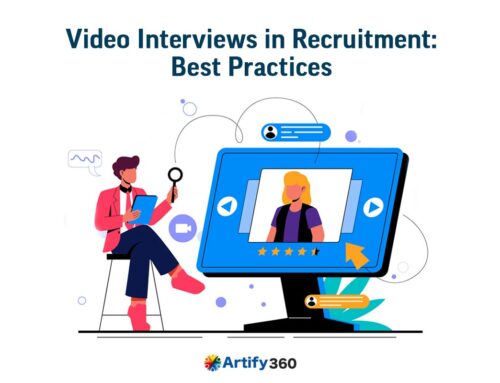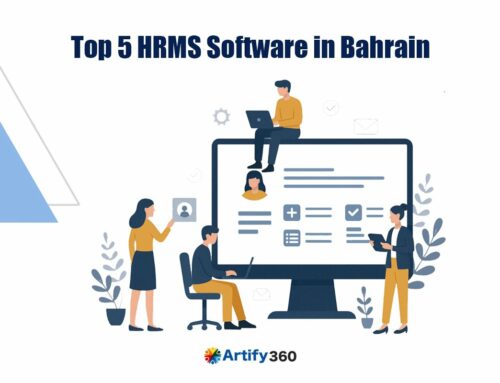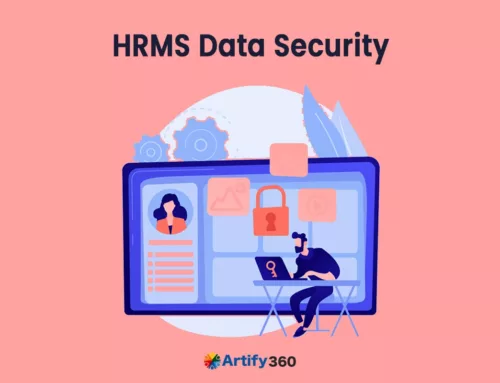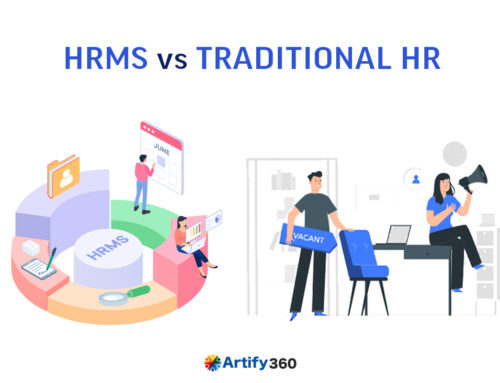Basic training in HR technology can help any professional adapt well to the working organization. It offers a flexible platform for professionals to join the optimal impact of HR activities in a business project. Though the HR leaders are the ones who need extensive knowledge of HRMS solutions, other resource managers should have foundational knowledge on the subject.
The content of this article corresponds to the idea of imparting exclusive HR training and development knowledge to the non-HR managers in the organization. It helps you analyze how to sync well with a defined set of HR norms to improve organizational performance.
How Can HR Training Contribute to The Organization’s Well-being?
As you already know, HR training is an excellent measure to learn about the positioning of a business in terms of its operations process. What distinguishes an HR domain from other firm segments is its effectiveness in creating and maintaining multiple interactive integrations within the business model.
From the perspective of organizational welfare, training & development in the HR domain is a core function of boosting the company’s brand profile and work culture. It is efficient in developing a holistic environment where all resources can come in and perform well.
HR training also serves the purpose of strengthening the employee engagement, performance management, and operations monitoring of a company irrespective of its industry type or serving audience. Core competency management and acknowledgment of the privileges of resources can be practiced with the best HR training programs.
A disciplined take on HR training categories will provide the option to build a consistent workflow in the organization that future resources can follow. Trained HR professionals know how to carry out essential operations from talent management tasks to compliance regulation supervision. While dealing with a diverse workforce management process, this training module can assist you in finding the right matching set of requirements.
Non-HR Managers in The Firm – Brief Overview
Non-HR managers primarily refer to the resource leaders working on carrying out the administrative tasks in an organization. They try and implement the HR processes formulated by the mainstream HR leaders. When the top HR personnel come up with new methodologies and policies as part of the HR framework, non-HR managers are required to execute them.
Since the common goal that connects non-HR managers and regular HR leaders is the same, you cannot differentiate between them beyond a certain level. When you apply automated systems to support the functioning of non-HR profiles, they can feasibly add value to the company’s goal of achieving a digitization model.
You may also consider leaders in profiles entirely different from HR jobs. But their HR relations pretty much deal with complying with the existing operations and HR division upgrades. The best feature of non-HR managers is that their lack of proficiency won’t cause any issues in contributing to essential HR tasks.
Practical Methods of Training Non-HR Managers with HR Models
Numerous options are available to train and develop non-HR managers with the core modules of HRM. These methods are listed and explained as follows.
- Course provisions
The most relevant and simplest method of creating HR training value for non-HR resources is through the provision of course programs. These courses are generally favorable online resources that help learners with timely upgrades and brainstorming sessions.
Course training is a practical model because all advantages connected to training sessions are covered under this segment. The easiest way to achieve the full potential of this service is by engaging the employee resources in non-HR profiles with attractive introductory sessions. It will allow them to integrate with the course syllabi at ease.
- Career planning sections
If you are planning for a more organized program in a professional setting to scale your non-HR tasks, the right door implies acceptance of career planning and progress portals. These are resource engagement activities built within the HR system of a company.
The greatest advantage of the career planning module is that apart from the digital transformation services, non-HR resources can seek direct help from the HR personnel engaging in the division. It will portray a collaborative work environment, with every single resource fitting well with the company’s HR culture.
- Training and development specific to the organization
Non-HR resources can receive personalized training support in their plans to achieve HR learning progress. It refers to the custom HR training modules that are unique to the organization. Non-HR managers can select from these modules on their own, or the company can decide on the provision of aligning automated solution support that matches the trainee’s needs.
To gather momentum using custom training methods in the organization’s working marketplace, you should rely on free HR training with proven tools and resources. A supporting role from the resident HR leaders can also help in this regard.
- Direct HR training
It refers to the traditional HR training method that works in association with the creation of base-level training programs. This method mostly follows an offline mode and is better for equipping and transforming non-HR resources in the traditional industry segments.
From a clarification and clearance viewpoint, the most wanted learning system to suit fresher requirements is direct, face-to-face HR training. Though it has some demerits compared to the less error-prone digital HR training, organizations still employ this technique to meet non-HR leaders’ objectives.
- Self-learning programs
The best factor of an employee achieving success with self-learning techniques is its application to low HR training systems. It will open up the space for receiving intangible assets for employees within the organization. Self-learning doesn’t have to mean a fully self-reliant feature. You can leverage existing automated and digital solutions to assist the learning process.
A distinguishing part of the self-learning HR training aspect is that it enables non-HR members of the department to become well-versed in the operations experience without sacrificing their professional commitment during the training period. It can be done in parallel while staying focused on their tasks.
Artify 360 – HR Training Gift for Non-HR Personnel
When you welcome non-HR personnel to the organization, they must undergo training schedules that can help them adapt to the prevalent HR processes. The major technology to fulfill this demand is the provision of digital HR solutions. Artify 360 cloud HR software is one such platform where HRMS is included as an innovative strategy that can be easily described and understood.
The concept of the Artify 360 HR software system covers every core HR feature that is necessary for your organization. It involves particular sections for training and employee learning categories. Artify 360 HR payroll software is easy to implement and organize among your human capital resources. It is proven in value addition for HR training courses in various regions, especially Dubai and the Middle East. You may also seek the help of HR experts to provide initial platform training to help freshers in the domain learn about the system.
Keeping assumptions at bay, you can reach out to the Artify 360 team to receive immersive training knowledge and experience that matches your organization’s vision & values. The effectiveness of Artify 360 for your non-HR functions can be analyzed as part of the initial requirements-gathering process.






